Delta Airlines 2012 Annual Report Download - page 17
Download and view the complete annual report
Please find page 17 of the 2012 Delta Airlines annual report below. You can navigate through the pages in the report by either clicking on the pages listed below, or by using the keyword search tool below to find specific information within the annual report.-
 1
1 -
 2
2 -
 3
3 -
 4
4 -
 5
5 -
 6
6 -
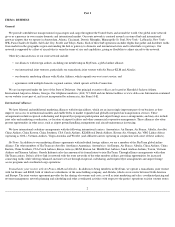 7
7 -
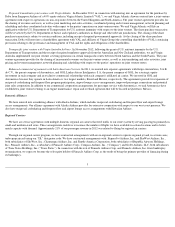 8
8 -
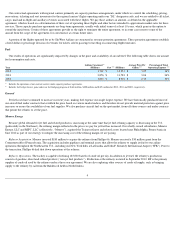 9
9 -
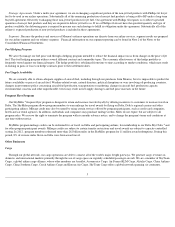 10
10 -
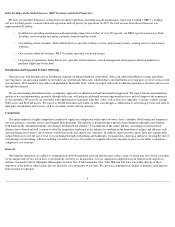 11
11 -
 12
12 -
 13
13 -
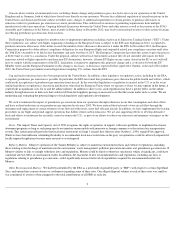 14
14 -
 15
15 -
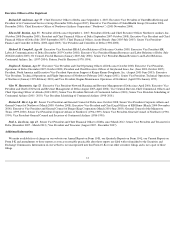 16
16 -
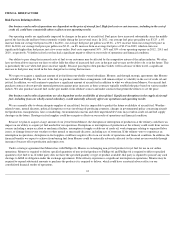 17
17 -
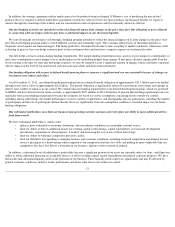 18
18 -
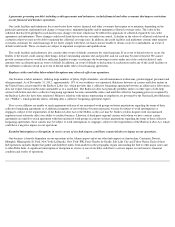 19
19 -
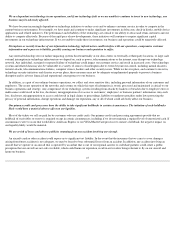 20
20 -
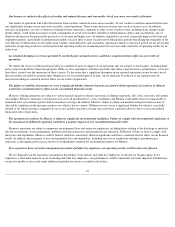 21
21 -
 22
22 -
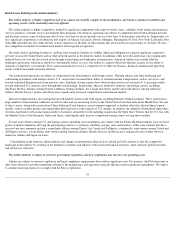 23
23 -
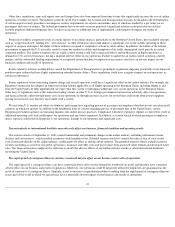 24
24 -
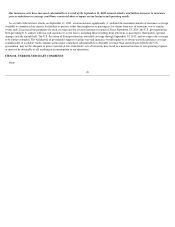 25
25 -
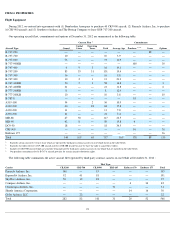 26
26 -
 27
27 -
 28
28 -
 29
29 -
 30
30 -
 31
31 -
 32
32 -
 33
33 -
 34
34 -
 35
35 -
 36
36 -
 37
37 -
 38
38 -
 39
39 -
 40
40 -
 41
41 -
 42
42 -
 43
43 -
 44
44 -
 45
45 -
 46
46 -
 47
47 -
 48
48 -
 49
49 -
 50
50 -
 51
51 -
 52
52 -
 53
53 -
 54
54 -
 55
55 -
 56
56 -
 57
57 -
 58
58 -
 59
59 -
 60
60 -
 61
61 -
 62
62 -
 63
63 -
 64
64 -
 65
65 -
 66
66 -
 67
67 -
 68
68 -
 69
69 -
 70
70 -
 71
71 -
 72
72 -
 73
73 -
 74
74 -
 75
75 -
 76
76 -
 77
77 -
 78
78 -
 79
79 -
 80
80 -
 81
81 -
 82
82 -
 83
83 -
 84
84 -
 85
85 -
 86
86 -
 87
87 -
 88
88 -
 89
89 -
 90
90 -
 91
91 -
 92
92 -
 93
93 -
 94
94 -
 95
95 -
 96
96 -
 97
97 -
 98
98 -
 99
99 -
 100
100 -
 101
101 -
 102
102 -
 103
103 -
 104
104 -
 105
105 -
 106
106 -
 107
107 -
 108
108 -
 109
109 -
 110
110 -
 111
111 -
 112
112 -
 113
113 -
 114
114 -
 115
115 -
 116
116 -
 117
117 -
 118
118 -
 119
119 -
 120
120 -
 121
121 -
 122
122 -
 123
123 -
 124
124 -
 125
125 -
 126
126 -
 127
127 -
 128
128 -
 129
129 -
 130
130 -
 131
131 -
 132
132 -
 133
133 -
 134
134 -
 135
135 -
 136
136 -
 137
137 -
 138
138 -
 139
139 -
 140
140 -
 141
141 -
 142
142 -
 143
143 -
 144
144 -
 145
145 -
 146
146 -
 147
147 -
 148
148 -
 149
149 -
 150
150 -
 151
151 -
 152
152 -
 153
153 -
 154
154 -
 155
155 -
 156
156 -
 157
157 -
 158
158 -
 159
159 -
 160
160 -
 161
161 -
 162
162 -
 163
163 -
 164
164 -
 165
165 -
 166
166 -
 167
167 -
 168
168 -
 169
169 -
 170
170 -
 171
171 -
 172
172 -
 173
173 -
 174
174 -
 175
175 -
 176
176 -
 177
177 -
 178
178 -
 179
179 -
 180
180 -
 181
181 -
 182
182 -
 183
183 -
 184
184 -
 185
185 -
 186
186 -
 187
187 -
 188
188 -
 189
189 -
 190
190 -
 191
191 -
 192
192 -
 193
193 -
 194
194 -
 195
195 -
 196
196 -
 197
197 -
 198
198 -
 199
199 -
 200
200 -
 201
201 -
 202
202 -
 203
203 -
 204
204 -
 205
205 -
 206
206 -
 207
207 -
 208
208 -
 209
209 -
 210
210 -
 211
211 -
 212
212 -
 213
213 -
 214
214 -
 215
215 -
 216
216 -
 217
217 -
 218
218 -
 219
219 -
 220
220 -
 221
221 -
 222
222 -
 223
223 -
 224
224 -
 225
225 -
 226
226 -
 227
227 -
 228
228 -
 229
229 -
 230
230 -
 231
231 -
 232
232 -
 233
233 -
 234
234 -
 235
235 -
 236
236 -
 237
237 -
 238
238 -
 239
239 -
 240
240 -
 241
241 -
 242
242 -
 243
243 -
 244
244 -
 245
245 -
 246
246 -
 247
247 -
 248
248 -
 249
249 -
 250
250 -
 251
251 -
 252
252 -
 253
253 -
 254
254 -
 255
255 -
 256
256 -
 257
257 -
 258
258 -
 259
259 -
 260
260 -
 261
261 -
 262
262 -
 263
263 -
 264
264 -
 265
265 -
 266
266 -
 267
267 -
 268
268 -
 269
269 -
 270
270 -
 271
271 -
 272
272 -
 273
273 -
 274
274 -
 275
275 -
 276
276 -
 277
277 -
 278
278 -
 279
279 -
 280
280 -
 281
281 -
 282
282 -
 283
283 -
 284
284 -
 285
285 -
 286
286 -
 287
287 -
 288
288 -
 289
289 -
 290
290 -
 291
291 -
 292
292 -
 293
293 -
 294
294 -
 295
295 -
 296
296 -
 297
297 -
 298
298 -
 299
299 -
 300
300 -
 301
301 -
 302
302 -
 303
303 -
 304
304 -
 305
305 -
 306
306 -
 307
307 -
 308
308 -
 309
309 -
 310
310 -
 311
311 -
 312
312 -
 313
313 -
 314
314 -
 315
315 -
 316
316 -
 317
317 -
 318
318 -
 319
319 -
 320
320 -
 321
321 -
 322
322 -
 323
323 -
 324
324 -
 325
325 -
 326
326 -
 327
327 -
 328
328 -
 329
329 -
 330
330 -
 331
331 -
 332
332 -
 333
333 -
 334
334 -
 335
335 -
 336
336 -
 337
337 -
 338
338 -
 339
339 -
 340
340 -
 341
341 -
 342
342 -
 343
343 -
 344
344 -
 345
345 -
 346
346 -
 347
347 -
 348
348 -
 349
349 -
 350
350 -
 351
351 -
 352
352 -
 353
353 -
 354
354 -
 355
355 -
 356
356 -
 357
357 -
 358
358 -
 359
359 -
 360
360 -
 361
361 -
 362
362 -
 363
363 -
 364
364 -
 365
365 -
 366
366 -
 367
367 -
 368
368 -
 369
369 -
 370
370 -
 371
371 -
 372
372 -
 373
373 -
 374
374 -
 375
375 -
 376
376 -
 377
377 -
 378
378 -
 379
379 -
 380
380 -
 381
381 -
 382
382 -
 383
383 -
 384
384 -
 385
385 -
 386
386 -
 387
387 -
 388
388 -
 389
389 -
 390
390 -
 391
391 -
 392
392 -
 393
393 -
 394
394 -
 395
395 -
 396
396 -
 397
397 -
 398
398 -
 399
399 -
 400
400 -
 401
401 -
 402
402 -
 403
403 -
 404
404 -
 405
405 -
 406
406 -
 407
407 -
 408
408 -
 409
409 -
 410
410 -
 411
411 -
 412
412 -
 413
413 -
 414
414 -
 415
415 -
 416
416 -
 417
417 -
 418
418 -
 419
419 -
 420
420 -
 421
421 -
 422
422 -
 423
423 -
 424
424
 |
 |

ITEM 1A. RISK FACTORS
Risk Factors Relating to Delta
Our business and results of operations are dependent on the price of aircraft fuel. High fuel costs or cost increases, including in the cost of
crude oil, could have a materially adverse effect on our operating results.
Our operating results are significantly impacted by changes in the price of aircraft fuel. Fuel prices have increased substantially since the middle
part of the last decade and have been extremely volatile during the last several years. In 2012 , our average fuel price per gallon was $3.25 , a 6%
increase from our average fuel price in 2011. In 2011, our average fuel price per gallon was $3.06 , a 31% increase from our average fuel price in
2010. In 2010, our average fuel price per gallon was $2.33 , an 8% increase from an average fuel price of $2.15 in 2009, which in turn was
significantly higher than fuel prices just a few years earlier. Fuel costs represented 36% , 36% and 30% of our operating expense in 2012 , 2011 and
2010 , respectively. Volatility in fuel costs has had a significant negative effect on our results of operations and financial condition.
Our ability to pass along the increased costs of fuel to our customers may be affected by the competitive nature of the airline industry. We often
have not been able to increase our fares to offset fully the effect of increased fuel costs in the past and we may not be able to do so in the future. This
is particularly the case when fuel prices increase rapidly. Because passengers often purchase tickets well in advance of their travel, a significant
increase in fuel price may result in the fare charged not covering that increase.
We expect to acquire a significant amount of jet fuel from our wholly-owned subsidiary, Monroe, and through strategic agreements that Monroe
has with BP and Phillips 66. The cost of the fuel we purchase under these arrangements will remain subject to volatility in the cost of crude oil and
jet fuel. In addition, we will continue to purchase a significant amount of aircraft fuel in addition to what we obtain from Monroe. Our aircraft fuel
purchase contracts do not provide material protection against price increases as these contracts typically establish the price based on various market
indices. We also purchase aircraft fuel on the spot market, from offshore sources and under contracts that permit the refiners to set the price.
Our business and results of operations are also dependent on the availability of aircraft fuel. Significant disruptions in the supply of aircraft
fuel, including from our wholly-owned subsidiary, would materially adversely affect our operations and operating results.
We are currently able to obtain adequate supplies of aircraft fuel, but it is impossible to predict the future availability of aircraft fuel. Weather-
related events, natural disasters, political disruptions or wars involving oil-producing countries, changes in governmental policy concerning aircraft
fuel production, transportation, taxes or marketing, environmental concerns and other unpredictable events may result in crude oil and fuel supply
shortages in the future. Shortages in fuel supplies could have negative effects on our results of operations and financial condition.
Because we plan to acquire a large amount of our jet fuel from Monroe, the disruption or interruption of production at the refinery could have an
impact on our ability to acquire jet fuel needed for our operations. Disruptions or interruptions of production at the refinery could result from various
sources including a major accident or mechanical failure, interruption of supply or delivery of crude oil, work stoppages relating to organized labor
issues, or damage from severe weather or other natural or man-made disasters, including acts of terrorism. If the refinery were to experience an
interruption in operations, disruptions in fuel supplies could have negative effects on our results of operations and financial condition. In addition, the
financial benefits we expect to achieve from buying fuel from Monroe could be materially adversely affected (to the extent not recoverable through
insurance) because of lost production and repair costs.
Under a strategic agreement that Monroe has with Phillips 66, Monroe is exchanging non-jet fuel products for jet fuel for use in our airline
operations. Monroe is required to deliver specified quantities of non-jet fuel products to Phillips 66 and Phillips 66 is required to deliver specified
quantities of jet fuel to us. If either party does not have the specified quantity or type of product available, that party is required to procure any such
shortage to fulfill its obligation under the exchange agreements. If the refinery experiences a significant interruption in operations, Monroe may be
required to expend substantial amounts to purchase the products it is required to deliver, which could have a material adverse effect on our
consolidated financial results of operations.
12
